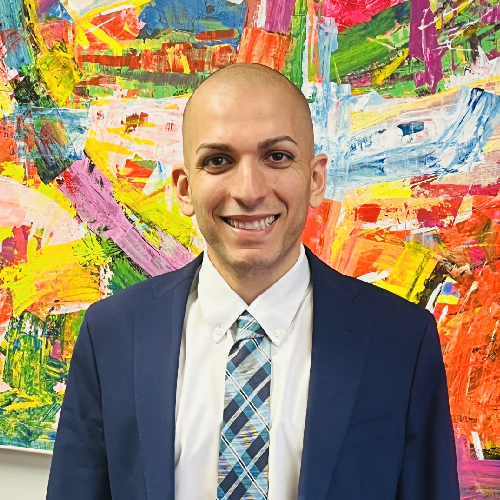Do You Need Legal Help?
https://vimeo.com/857899818

"Deandra Grant Law fights hard for their clients and is always willing to go above and beyond. They are the best firm for DWI cases in DFW and beyond. Definitely hire them to represent you in any pending cases."
- P. Williams

"Deandra Grant made a tough situation so much better. She listened to my concerns and helped me so much with my case. I would recommend her to anyone needing legal services."
- M. Haley

"Deandra Grant Law handled my case with diligence and professionalism. Deandra Grant's reputation is stellar and now I know why. She has a team of individuals who provide quality service."
- N. Coulter
As Seen On





A Fighting Team On Your Side
Since 1994 when our doors opened, Deandra Grant Law has helped thousands of clients get their DWI charges reduced or dismissed. We're ready to fight on your behalf.

Managing Partner
Partner & Criminal Division Chief
Criminal Division Trial Chief
Criminal Trial Division
Criminal Trial Division
Of Counsel


Download Our Free Texas Criminal Guide
Learn what you should and shouldn't be doing to help your criminal defense case.
Austin Expungement Lawyers
Clearing Your Record: Understanding Expungements and Nondisclosures in Austin, TX
Welcome to Deandra Grant Law, where we understand the importance of a clean slate and a fresh start. If you find yourself on this page, you may be looking to expunge or obtain a nondisclosure for your criminal record in Austin, TX. We want you to know that we are here to help you through this process with empathy and expertise.
What is an Expunction in Texas?
An expunction is an order a court issues stating that your criminal record can be cleared. When an expungement is granted, the court cannot give out any information concerning your arrest or conviction (under certain circumstances). Additionally, any agency with details about your involvement in criminal proceedings must destroy their records or send them to the court.
To seek an expunction, you must first prepare and submit a petition to the appropriate court. The documents need to be complete and accurate. If you submit an incomplete form or provide incorrect information, your case may be delayed or denied.
After the court receives your petition, it will schedule you for a hearing. The proceeding allows individuals with interest in the case to contest your request. However, the court should grant the expunction, provided that you meet the qualifying criteria.
Having your criminal record cleared can provide the relief you need from hurdles you’re facing because of your involvement with the justice system. We understand how important this is for you. That is why our expunction attorneys in Dallas will guide you through every step, ensuring that your petition is filled out correctly and sent to the right place.
The Importance of Hiring an Austin Expungement Lawyer
Obtaining an expungement or nondisclosure can have a significant impact on your life. Having a criminal record can create barriers to employment, housing, education, and various other opportunities. It can also affect your personal relationships and overall well-being. Hiring an experienced Austin Expungement Lawyer is crucial to navigate the complexities of the legal system and increase your chances of a successful outcome.
Understanding Eligibility for Expungement
In Texas, certain individuals are eligible for expungement if they meet specific criteria. These include:
- Acquittal or Pardon: If you were tried and acquitted, or if you were convicted but later pardoned or relieved because of actual innocence, you may be eligible for expunction.
- Unlawful Carrying of Weapon (UCW) Charges: In certain circumstances, individuals convicted of Unlawful Carrying of Weapon charges may be eligible for expungement.
- Dismissed Cases: Cases that were dismissed without community supervision, unless they were class C tickets, and cases in which the statute of limitations has expired may be eligible for expungement.
- No Charges Filed: If you were arrested, but charges were never filed, and a specific waiting period has expired, you may be eligible for expunction. The waiting period varies based on the severity of the offense.
- Clerical Errors: In cases where an arrest occurred due to a clerical error, expungement may be possible.
-
What is an Order of Nondisclosure in Texas?
An order of nondisclosure is like an expunction. It provides relief from the limitations arising from involvement in a criminal matter. However, it does not completely clear your record. Instead, it seals it.
A distinction exists between record clearing and record sealing. With record clearing (through an expunction), the information concerning your case is removed and destroyed. With record sealing (through nondisclosure), the details concerning your case are still maintained. However, neither the court nor criminal justice agencies with access to your files can provide that information to the public. Your record can only be released to certain entities under limited circumstances.
Requesting an order of nondisclosure begins with preparing and filing a petition. You must demonstrate in your petition that you are eligible to pursue this avenue for relief. You must also ensure that you submit the documents to the correct court.
After you submit your petition, the court will:
- Notify the District Attorney’s Office of your request,
- Schedule you for a hearing, and
- Determine whether sealing your record is in the best interest of justice.
Our nondisclosure lawyers in Dallas are here to prepare your file and demonstrate that you are entitled to file a petition.
https://vimeo.com/857855928
Related Videos
Who Qualifies for Nondisclosure?
Chapter 411 of the Texas Government Code lists the criteria for seeking an order of nondisclosure in various circumstances. We’ll discuss the specific requirements for each a bit later. But generally, to qualify for nondisclosure, you must not have been convicted of or placed on deferred adjudication community supervision during the sentence or waiting period for the offense you are requesting to have sealed. In other words, you must have been crime-free (except for traffic violations) after a decision was made in the case you are seeking nondisclosure for.
You may not qualify for an order of nondisclosure if you are requesting relief from or have been previously convicted or placed on community supervision for:
An offense requiring registration as a sex offender;
- Aggravated kidnapping;
- Murder;
- Capital murder;
- Trafficking of persons;
- Continuous trafficking of persons;
- Injury to a child, elderly person, or disabled individual;
- Abandoning or endangering a child;
- Violating a condition of bond set in a family violence, sexual assault, indecent assault, stalking, or trafficking case;
- Stalking; or
- A family violence offense.
What Offenses are Eligible for Nondisclosure in Texas?
The records for certain misdemeanors or felonies resulting in convictions or deferred adjudication community supervision may be eligible for nondisclosure.
Below we discuss the criteria and processes for different situations.
Nonviolent Misdemeanors Resulting in Deferred Adjudication Community Supervision (Texas Government Code § 411.072)
Relief is available to first-time offenders whose judgment was deferred and were placed on community supervision at a certain time.
Typically, though the court will not automatically issue an order of nondisclosure without a request from an eligible person, the nondisclosure process is more streamlined if the individual meets the general criteria for nondisclosure and the judge discharges and dismisses the case.
Automatic nondisclosure for nonviolent misdemeanors resulting in community supervision is not available if the offense was:
- DWI or BWI,
- Kidnapping,
- A sexual offense,
- An assaultive offense,
- An offense against the family,
- Disorderly conduct,
- Public indecency,
- A weapons crime, or
- Organized crime.
Certain Misdemeanors and Felonies Resulting in Deferred Adjudication Community Supervision (Texas Government Code § 411.0725)
An individual may petition for an order of nondisclosure if placed on deferred adjudication community supervision for certain misdemeanors or felonies. However, they are not eligible for relief if the offense was DWI or BWI.
The individual can file a petition:
- After their case was discharged and dismissed (for certain misdemeanors only).
- 2 years after the discharge and dismissal of their case if it involved any of the following misdemeanors:
- Kidnapping
- Sexual offense
- Assault
- Offense against the family
- Disorderly conduct
- Public indecency
- 5 years after their case was dismissed if it were a felony
Certain DWI or BWI Misdemeanors Resulting in Deferred Adjudication Community Supervision (Texas Government Code § 411.0726)
Individuals convicted of a first-time misdemeanor DWI or BWI may petition for an order of nondisclosure 2 years after the court has dismissed and discharged their case.
If the District Attorney’s Office provides evidence that the person caused an accident involving someone else (including a passenger in the person’s own car), the court may not grant the request for relief.
Completion of a Veterans Court Treatment Program (Texas Government Code § 411.0727)
Relief may be available for veterans convicted of or placed on deferred adjudication community supervision for felonies or misdemeanors and ordered to attend a treatment program. They can petition for nondisclosure 2 years after completing the program. However, they are not eligible if the information they are requesting to have sealed is related to a DWI offense.
Certain Misdemeanors Resulting in Community Supervision Upon a Conviction (Texas Government Code § 411.073)
If a person is convicted of a misdemeanor and ordered to confinement as a condition of community supervision, they could petition for an order of nondisclosure. However, operating while intoxicated offenses are not eligible under this statute.
To qualify for relief, the individual must:
- Have completed the community supervision period, including the term of confinement;
- Have satisfied all fines, court costs, and victim restitution; and
- Not have been previously convicted of or placed on deferred adjudication community supervision for any offense.
The individual can submit a petition after:
- Completing their term of community supervision; or
- 2 years after completing their term of community supervision if they were convicted of kidnapping, a sexual offense, assault, an offense against the family, disorderly conduct, public indecency, or a weapons crime.
Certain DWI Convictions Resulting in Community Supervision (Texas Government Code § 411.0731)
A person may petition for an order of nondisclosure for a DWI conviction if the offense was a misdemeanor and did not involve a blood alcohol concentration of 0.15 or more. To be eligible under the statute, the individual must have been ordered to serve a term of confinement as a condition of community supervision.
The individual can apply for relief after completing their sentence and paying all costs and fees:
- 2 years after finishing the community supervision term, if they were ordered to and complied with the condition to have an ignition interlock device installed (IID) on their vehicle.
- 5 years after finishing the community supervision term if they did not have an IID restriction.
The court may not grant the request if the District Attorney’s Office shows that the DWI offense led to an accident involving another person (including a passenger in the petitioner’s own vehicle).
Certain Misdemeanor Convictions (Texas Government Code § 411.0735)
Convictions for misdemeanors other than alcohol-related offenses may be eligible for an order of nondisclosure. The individual must have completed their sentence, including satisfying periods of confinement, fines, costs, and restitution.
The individual does not qualify if:
- They were previously convicted of or placed on deferred adjudication community supervision for any other offense; or
- The information they are seeking to have sealed was for a sexual or violent crime.
The person may file a petition:
- Immediately after completing the sentence for a Class C misdemeanor, or
- 2 years after completing their sentence for a Class B or A misdemeanor.
Certain DWI Convictions (Texas Government Code § 411.0736)
A nondisclosure may be granted for misdemeanor DWI convictions not involving a BAC of 0.15 or more. The individual must be a first-time offender and complete their sentence, including terms of confinement, fines, costs, and restitution. They might not be eligible if their offense resulted in an accident involving another person (including a passenger in their own vehicle).
The individual may apply for an order of nondisclosure:
- 3 years after completing their sentence, if they were ordered to have an IID installed on their vehicle, or
- 5 years after completing their sentence if they were not subject to an IID restriction.
Related Blogs
Why Have Your Criminal Record Expunged in Texas?
Studies have shown that individuals with criminal records face substantial challenges in their lives. According to the National Employment Law Project, about 70 million adults in the United States have a criminal record. Having a criminal record can lead to unemployment rates of up to 50% after one year of release.
How Deandra Grant Law Can Help You
At Deandra Grant Law, we are dedicated to helping you pursue positive results in expunging or obtaining a nondisclosure for your criminal record. Our experienced Austin Expungement Lawyers will guide you through the process step by step, ensuring that all necessary documents are filed correctly and that your rights are protected.
Choosing Deandra Grant Law for Your Expungement or Nondisclosure in Austin, TX
Navigating the process of obtaining an expungement or nondisclosure for your criminal record can be overwhelming and confusing. At Deandra Grant Law, we understand the importance of a fresh start and a clean slate, and we are here to guide you through every step of the way. Here’s why you should choose our team of experienced Austin Expungement Lawyers to defend you against the charges:
Experience: Our team of Austin Expungement Lawyers has extensive experience in handling expungement and nondisclosure cases. We are well-versed in the intricacies of the legal system and have a track record of success in helping individuals clear their criminal records.
Personalized Approach: At Deandra Grant Law, we treat each case with the attention and care it deserves. We understand that every individual’s situation is unique, and we tailor our approach to meet your specific needs and goals. Our team will work closely with you to understand your circumstances and develop a customized strategy for your expungement or nondisclosure.
Free Consultations: We offer free consultations to discuss your case and assess your eligibility for expungement or nondisclosure. This initial meeting provides an opportunity for you to ask questions, understand the process, and get to know our team.
Guiding You Through Complex Proceedings: Obtaining an expungement or nondisclosure can involve complicated court and administrative proceedings. Our team will be by your side throughout the entire process, ensuring that all necessary documents are filed correctly, deadlines are met, and your rights are protected.
Determining Your Best Chances for Success: Understanding whether you are eligible for an expungement or nondisclosure is essential to pursue a positive outcome. We will carefully evaluate your case, considering the specific eligibility criteria and relevant factors, to help you make informed decisions.
Advocating for Your Rights: At Deandra Grant Law, we are committed to advocating for your rights and fighting for your best interests. We understand the impact that a criminal record can have on your life, and we are dedicated to helping you move forward with confidence and a clear path.
Mistakes to Avoid When Seeking an Expungement in Austin, TX
Obtaining an expungement can be a crucial step towards a fresh start, clearing your criminal record and moving forward with confidence. However, the process can be complex and challenging, and it’s essential to avoid common pitfalls that may hinder your chances of a successful expungement. Here are some mistakes to avoid, along with how Deandra Grant Law can assist you in navigating this important journey:
Procrastinating on Taking Action
One of the most significant mistakes is waiting too long to pursue an expungement. In Texas, there are specific waiting periods after an arrest or conviction that must pass before you become eligible. Don’t delay in seeking legal counsel and understanding your eligibility for expungement or nondisclosure. Our team of experienced Austin Expungement Lawyers will assess your case promptly and determine your eligibility for an expungement. We will guide you through the process, ensuring all required deadlines are met to increase your chances of success.
Misunderstanding Eligibility Criteria
Each expungement case is unique, and understanding whether you qualify can be complicated. Some charges are eligible for expungement, while others may only qualify for a nondisclosure. Misunderstanding these criteria can lead to wasted time and effort. We have a deep understanding of the expungement and nondisclosure laws in Austin, TX. Our team will carefully evaluate your case, inform you about your eligibility options, and work to pursue the most favorable outcome for your situation.
Failing to Gather Adequate Documentation
The success of an expungement petition often relies on providing the appropriate documentation to support your case. Failure to gather essential records or submitting incomplete paperwork can lead to delays or denials. We will assist you in gathering all necessary documentation and ensuring that your petition is complete and well-prepared. Our attention to detail will help avoid potential setbacks and expedite the process.
Representing Yourself Without Legal Guidance
Navigating the legal process without professional guidance can be overwhelming. It’s essential to have an experienced expungement lawyer by your side to advocate for your rights and protect your interests. Our team of Austin Expungement Lawyers has a proven track record of successfully representing clients seeking expungements. We will advocate for your rights, handle all legal proceedings, and provide expert advice to maximize your chances of a successful outcome.
Frequently Asked Questions About Expunging Your Criminal Record in Austin, TX
At Deandra Grant Law, we understand that pursuing an expungement in Austin, TX can raise many questions and uncertainties. Here are some common questions that people looking to get their criminal record expunged may want to ask a lawyer, along with our informative answers:
An expungement is a legal process that allows eligible individuals to clear their criminal record from public view. Once expunged, the record is effectively erased, providing you with a fresh start and increased opportunities for employment, housing, and other aspects of life. It can offer relief from the negative consequences of a criminal record.
Eligibility for an expungement depends on various factors, including the nature of the offense, the disposition of the case, and the amount of time that has passed since the incident. Generally, you may be eligible if you were acquitted, pardoned, convicted but later pardoned or relieved due to innocence, had your case dismissed, or met specific waiting periods after an arrest without charges filed. Consulting an experienced expungement lawyer is crucial to determine your eligibility.
While both expungement and nondisclosure can help you hide your criminal record, they differ in the extent of record sealing. Expungement completely erases the record, making it as if the offense never occurred. Nondisclosure, on the other hand, seals the record from public view but is still accessible to some government agencies and law enforcement. It’s essential to discuss your specific case with a knowledgeable lawyer to decide the best option for you.
The expungement process timeline can vary depending on the complexity of your case and the court’s caseload. Generally, it can take several months from the initial filing to the final resolution. Hiring an experienced expungement lawyer can expedite the process and ensure all required documents are submitted promptly.
While it is technically possible to represent yourself, the expungement process can be complex, with specific legal requirements and deadlines. Hiring an experienced expungement lawyer can significantly increase your chances of a successful outcome by navigating the process efficiently and effectively.
Our dedicated team of Austin Expungement Lawyers will guide you through the entire process. We will assess your eligibility, assist in gathering necessary documentation, prepare and file your petition accurately, and advocate for your rights in court. We will work diligently to pursue positive results in your expungement journey.
Expungement Client Story
This client story is for educational purposes only.
In the bustling city of Austin, Texas, there lived a man named Paul. He was a kind-hearted and hardworking individual who always strived to do the right thing. One fateful day, Paul’s life took an unexpected turn when he was wrongfully arrested due to a clerical error.
Despite the mistake, Paul found himself facing the harsh reality of having a criminal record. He felt trapped and worried about the impact this error would have on his future. He knew that having a criminal record could hinder his chances of securing a good job, finding a place to live, and pursuing his dreams.
Feeling lost and overwhelmed, Paul sought guidance and hope in his search for justice. That’s when he discovered Deandra Grant Law and their team of compassionate and experienced Austin Expungement Lawyers. Among them was the exceptional Lawyer, Deandra Grant, whose dedication to helping individuals like Paul find redemption and a fresh start shone brightly.
From the moment Paul met Deandra, he felt a sense of relief. Her warm and understanding nature immediately put him at ease. Deandra took the time to listen to his story, offering a compassionate ear and a reassuring smile. She assured Paul that he was not alone in his struggle and that together, they would work to right the wrong that had been done.
Deandra meticulously reviewed Paul’s case, leaving no stone unturned in her quest for justice. With a keen eye for detail and a profound understanding of the legal process, she navigated through the complexities of the expungement procedure.
With every step forward, Deandra provided Paul with updates and reassurances, always keeping him informed and involved in the process. She fought tirelessly to clear his name and erase the unjust mark on his record. Deandra’s determination and unwavering commitment gave Paul the strength to believe in a brighter future.
After months of diligent effort, Deandra succeeded in getting Paul’s criminal record expunged. The weight that had burdened him for so long was finally lifted, and he could breathe freely once again. With tears of joy and gratitude, Paul thanked Deandra and the entire team at Deandra Grant Law for their unwavering support and expert guidance.
With a newfound sense of hope and optimism, Paul could now look forward to a life without the shadows of the past haunting him. He knew that he owed it all to Deandra and the compassionate team of Austin Expungement Lawyers who had become his champions and guides.
Contact Our Experienced Expungement Lawyers at Deandra Grant Law
If you’re seeking a clean slate and a chance to leave your past behind, you’ve come to the right place. At Deandra Grant Law, our team of experienced Austin Expungement Lawyers are dedicated to helping you achieve a fresh start by clearing your criminal record through expungement or obtaining a nondisclosure.
We understand the impact a criminal record can have on your life, affecting job opportunities, housing prospects, and personal relationships. That’s why we offer free consultations to discuss your unique situation and explore the best options for your case.
Our compassionate and knowledgeable attorneys will guide you through the process, explaining every step along the way. With a deep understanding of Austin’s expungement and nondisclosure laws, we will work diligently to pursue a positive outcome for your case.
Rest assured that our team will advocate for your rights, leaving no stone unturned in our pursuit of justice. We believe in second chances, and we are committed to helping you achieve a brighter future.
Take the first step towards a fresh start by reaching out to Deandra Grant Law today. Together, we can navigate the complexities of the expungement and nondisclosure process and help you leave your past behind. Your brighter tomorrow awaits, and we are here to guide you every step of the way. Contact us now to schedule your free consultation and take the first step towards a clean slate.
Client Reviews
![]()
“Deandra Grant Law handled my case with diligence and professionalism. Deandra Grant’s reputation is stellar and now I know why. She has a team of individuals who provide quality service.”
N. Coulter


(214) 225-7117
Experienced DWI Defense














